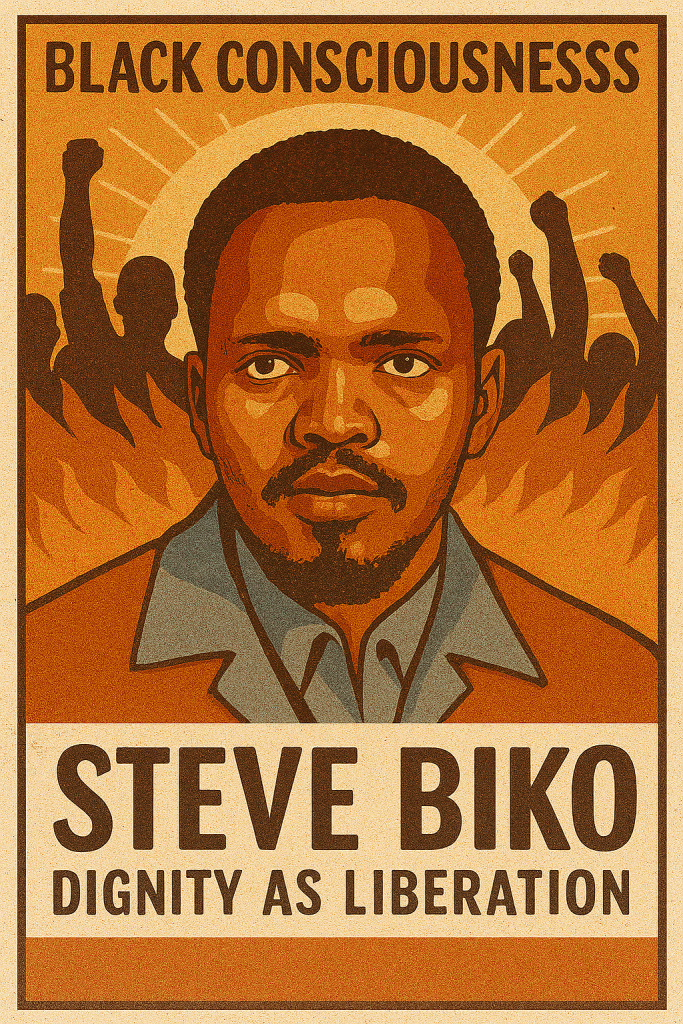
By Cheikh Fall, Third Path Africa
Commemorating a legacy, activating a mandate
Forty-eight years ago, Steve Biko was murdered in police custody. He was 30 years old. His body bore the marks of state brutality, but his legacy bore the blueprint for liberation. Today, we remember not only the man, but the movement he ignited—a movement rooted in dignity, psychological emancipation, and unapologetic African agency.
Born in 1946 in King William’s Town, Biko emerged as a moral architect of resistance. He founded the Black Consciousness Movement, not to protest apartheid’s laws, but to dismantle its psychological grip. His message was clear: “The most potent weapon in the hands of the oppressor is the mind of the oppressed.”
This was not metaphor. It was strategy.
Through the South African Students’ Organisation (SASO) and the Black People’s Convention (BPC), Biko built platforms for self-reliance, education, and community empowerment. He rejected paternalistic liberalism and insisted that Black liberation must be led by Black people—not mediated through external validation.
Repression and Martyrdom
By 1973, Biko was banned from public speaking and confined to his hometown. Yet he continued his work covertly, establishing the Zimele Trust Fund to support political prisoners and their families. In August 1977, he was arrested, brutally beaten, and transported over 700 miles while unconscious. He died of a brain hemorrhage in police custody on September 12, 1977, at age 30.
His death sparked international outrage, immortalized in Peter Gabriel’s haunting song “Biko”, and drew attention to the brutality of apartheid. Nelson Mandela later called him “the spark that lit a veld fire across South Africa.”
From Biko’s Blueprint to Continental Agency
Today, Africa faces new forms of extraction—not just of minerals, but of data, identity, and institutional voice. The struggle is no longer only against colonial regimes, but against systems that commodify African value while erasing African authorship.
Third Path Africa stands in continuity with Biko’s vision. Our work—building treaty-based frameworks for resource sovereignty, restoring trust through ethical infrastructure, and reframing Africa’s global posture—is not a departure from his philosophy. It is its evolution.
We believe, as Biko did, that liberation is not granted—it is claimed. That dignity is not decorative—it is foundational. And that Africa’s place in the world must be authored by Africans themselves, through systems that reflect their worth, wisdom, and will.
To honor Steve Biko is to operationalize his philosophy. Not with slogans, but with structure. Not with nostalgia, but with strategy.
May his memory continue to guide our work. May his courage continue to shape our conscience. May his vision continue to animate our path.